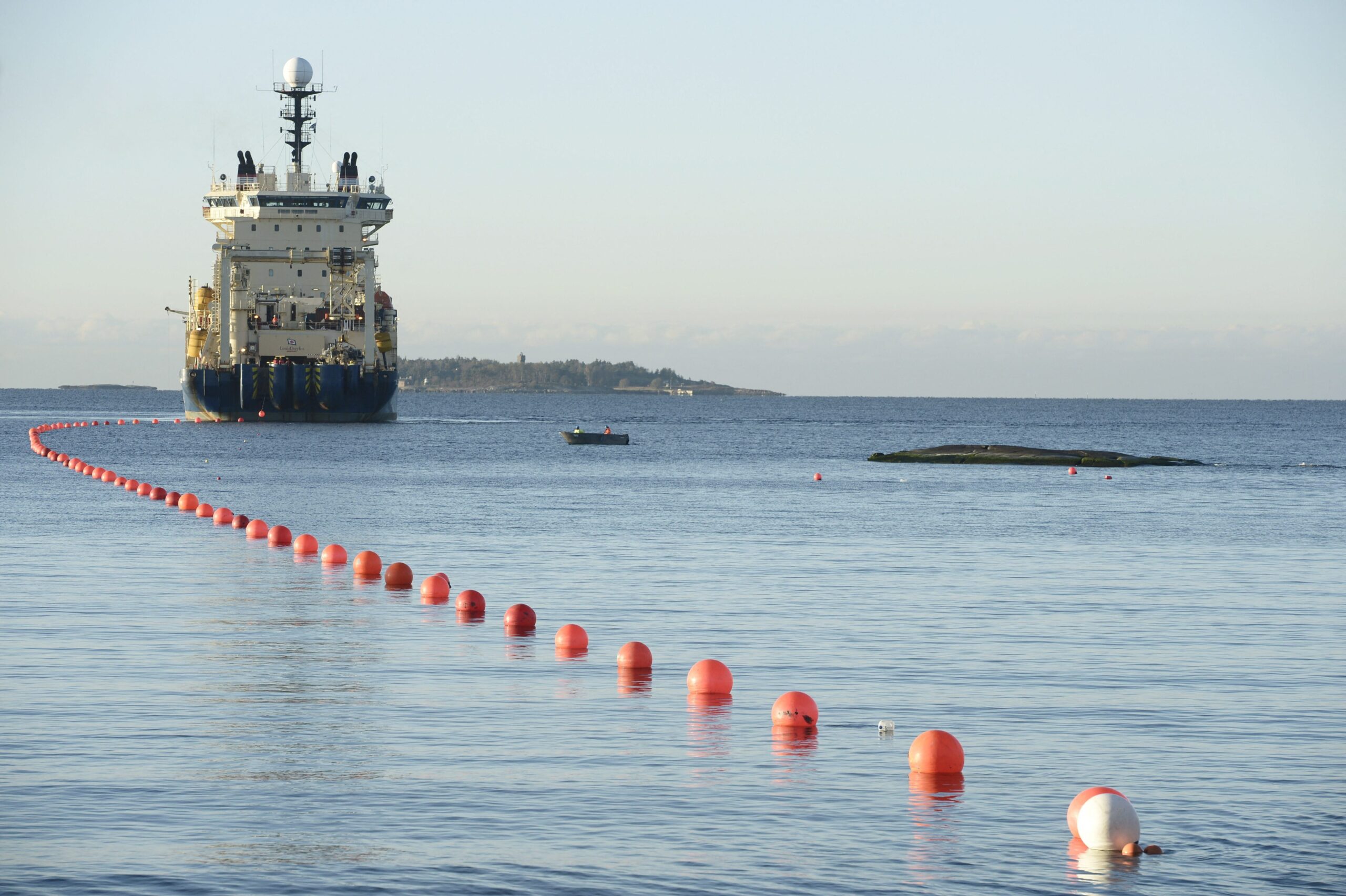Germany and Finland are investigating the deliberate severing of undersea data cables in the Baltic Sea, calling it a likely act of sabotage. Two cables—one connecting Finland to Germany and another linking Lithuania to Sweden—were damaged this week.
While internet connections remain largely unaffected, officials view the incidents as part of a growing hybrid threat to European security.
German Defense Minister Boris Pistorius dismissed the possibility of accidental damage, stating, “No one believes that the cables were accidentally damaged.” He emphasized that ship anchors would be unlikely to cause such damage. However, Pistorius admitted there is no concrete evidence yet to identify the perpetrators, according to The New York Times.
The damaged Finland-Germany cable, known as C-Lion1, spans 730 miles and serves as the only direct data link between Finland and Central Europe. The Lithuanian-Swedish cable was reportedly cut early Sunday, reducing Lithuania’s internet capacity by approximately 20%, as noted by Telia Lithuania in a report from CNN. Repair timelines range from several days to two weeks, telecommunications firms Cinia and Telia Lithuania have indicated.
Rising Concerns Over Russian Hybrid Warfare
Both Germany and Finland have issued a joint statement expressing concern over these incidents, directly pointing to Russia’s role in undermining European stability. The statement underscores the threat from hybrid warfare, including cyberattacks, propaganda, and infrastructure sabotage, which has been an ongoing concern since the start of Russia’s war in Ukraine.
NATO’s Allied Maritime Command (MARCOM) had previously warned of potential Russian plans targeting undersea cables and pipelines. Reports from 2022, highlighted by The Guardian, indicated the presence of Russian spy ships near strategic infrastructure in Nordic waters. In August, NATO reiterated these risks, suggesting such actions could be retaliation for Western support of Ukraine.
Recent events follow similar patterns. In October 2023, undersea cables between Sweden and Estonia were partially damaged during the rupture of the Balticconnector gas pipeline between Finland and Estonia. These incidents, documented by the BBC, have heightened regional vigilance and scrutiny of maritime activity in the Baltic Sea.
Investigations Underway
Germany, Finland, and Lithuania are conducting investigations to determine the cause of the cable disruptions. While no official accusations have been made, Russia remains the primary suspect, consistent with past warnings about its military and intelligence activities in the region.
As Europe navigates increasing threats to its critical infrastructure, the importance of protecting undersea cables—responsible for 95% of global internet traffic—has become a focal point for NATO and EU security discussions.











